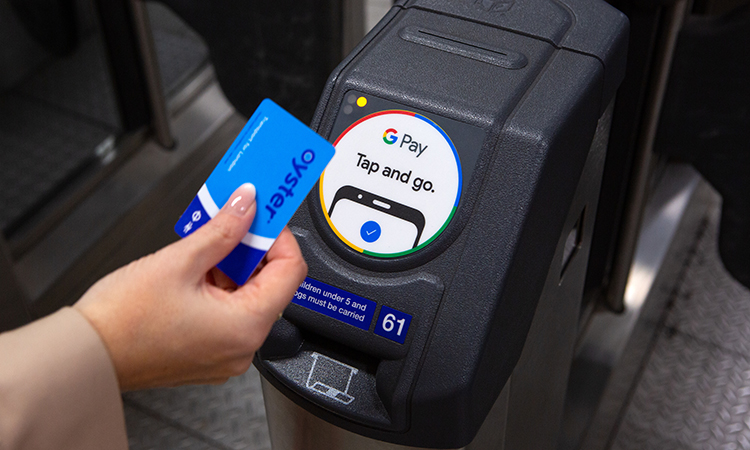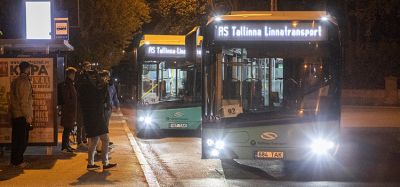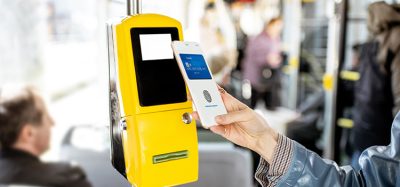Mayor of London announces changes to Transport for London fares
- Like
- Digg
- Del
- Tumblr
- VKontakte
- Buffer
- Love This
- Odnoklassniki
- Meneame
- Blogger
- Amazon
- Yahoo Mail
- Gmail
- AOL
- Newsvine
- HackerNews
- Evernote
- MySpace
- Mail.ru
- Viadeo
- Line
- Comments
- Yummly
- SMS
- Viber
- Telegram
- Subscribe
- Skype
- Facebook Messenger
- Kakao
- LiveJournal
- Yammer
- Edgar
- Fintel
- Mix
- Instapaper
- Copy Link
Posted: 14 February 2022 | Intelligent Transport | No comments yet
As the future of Transport for London’s longer term funding settlement remains uncertain, Sadiq Khan has announced a RPI+1 increase for London fares as part of efforts to ensure that TfL can reach financial sustainability by April 2023.


Credit: Transport for London
The Mayor of London, Sadiq Khan, has outlined details of the fare changes required for Transport for London (TfL) services from 1 March 2022, following conditions set in the short-term extension of TfL’s funding agreement with the UK government. The details released on 14 February 2022 show that fares will rise by an average of 4.8 per cent, meaning that most will increase by either 10p or 20p.
These changes to fares will help to ensure that TfL can reach financial sustainability by April 2023, in line with the long-term objective of the funding agreements, while also ensuring that the increase in fares is as affordable as possible for Londoners. This is only the second time that TfL’s controlled fares have increased since 2016, after the Mayor froze fares between 2016 and 2021. In the eight years prior to 2016, under the previous Mayor, TfL fares increased regularly and ultimately surged by more than 42 per cent.
While the overall level of fares set by TfL will increase by an equivalent of RPI+1, some individual London Underground (Tube) fares will increase by more or less than that amount owing to rules stating that increases can only be made by 10p increments. Tube fares solely within Zone 1 will increase for the first time in six years, from £2.40 to £2.50. Passengers who travel greater distances on TfL services will see a slight increase to further bring them in line with nearby National Rail fares. However, these increases are still significantly below what any cumulative increase would have been had fares been raised in line with inflation over the last six years.
While single Pay As You Go (PAYG) fares on Tube, Docklands Light Railway (DLR) and most TfL-run rail services will increase by RPI+1, bus and tram single fares will increase by 10p to £1.65, and the daily cap will increase by 30p to £4.95, the same price as three single journeys. As rail revenue is significantly higher than bus and tram revenue, and TfL has budgeted for fares to rise by RPI+1 overall to reach financial sustainability in line with the funding agreements, bus and tram fares will need to increase by the equivalent of RPI+2.7 per cent to achieve the overall rise.
The ‘Hopper’ fare, which was introduced by the Mayor in September 2016, remains in place and will continue to provide meaningful savings for Londoners in offering unlimited bus and tram travel within an hour for the price of a single fare. Since it was introduced, more than 600 million Hopper fare journeys have been. Khan has taken action to ensure that all current concessions, including free travel for young people under the age of 18 and discounts for students, apprentices and those on certain benefits, also remain in place.
The Mayor of London, Sadiq Khan, said: “Public transport should be affordable to all, and I’ve taken bold action to ensure this since I became Mayor by introducing the unlimited Hopper bus fare and freezing all TfL fares from 2016 to 2021 – saving the average London household over £200. Since TfL’s finances were decimated by the pandemic, the government has set strict conditions as part of the emergency funding deals to keep essential transport services running in London. We have been forced into this position by the government and the way it continues to refuse to properly fund TfL, but I have done everything in my power to keep fares as affordable as possible.”
Shashi Verma, Director of Strategy at Transport for London, said: “This fares package aims to keep fares as affordable as possible while still ensuring that TfL can continue to run clean, green and safe services and support London’s continued economic recovery. Through daily and weekly capping, as well as the Hopper fare and our wide range of concessions, passengers can continue to get the best value fare by using Pay As You Go with contactless and Oyster.”
Responding to the Mayor’s announcement of TfL fare changes from March 2022, Nick Bowes, Chief Executive at Centre for London, said: “Today’s steep fare rises will add further to the cost of living pressures being felt by Londoners. At a time when the priority is getting more people back on to tubes, buses and trains, the risk is a rise like this will have the opposite effect, dampening the city’s recovery from the pandemic, hitting central London’s economy particularly hard. Given the frailty of Transport for London’s finances and the fact that the current funding deal runs out in just four days, this further strengthens the importance of a long-term sustainable funding deal being agreed with government as a matter of urgency.”
Related topics
Accessibility, COVID-19, Passenger Experience, Public Transport, Ticketing & Payments, Transport Governance & Policy
Related modes
Bus & Coach, Heavy Rail, Light Rail, Train, Tram, Underground
Related cities
London
Related countries
United Kingdom
Related organisations
Centre for London, Docklands Light Railway (DLR), London Underground, Transport for London (TfL), UK Government
Related people
Nick Bowes, Sadiq Khan, Shashi Verma








